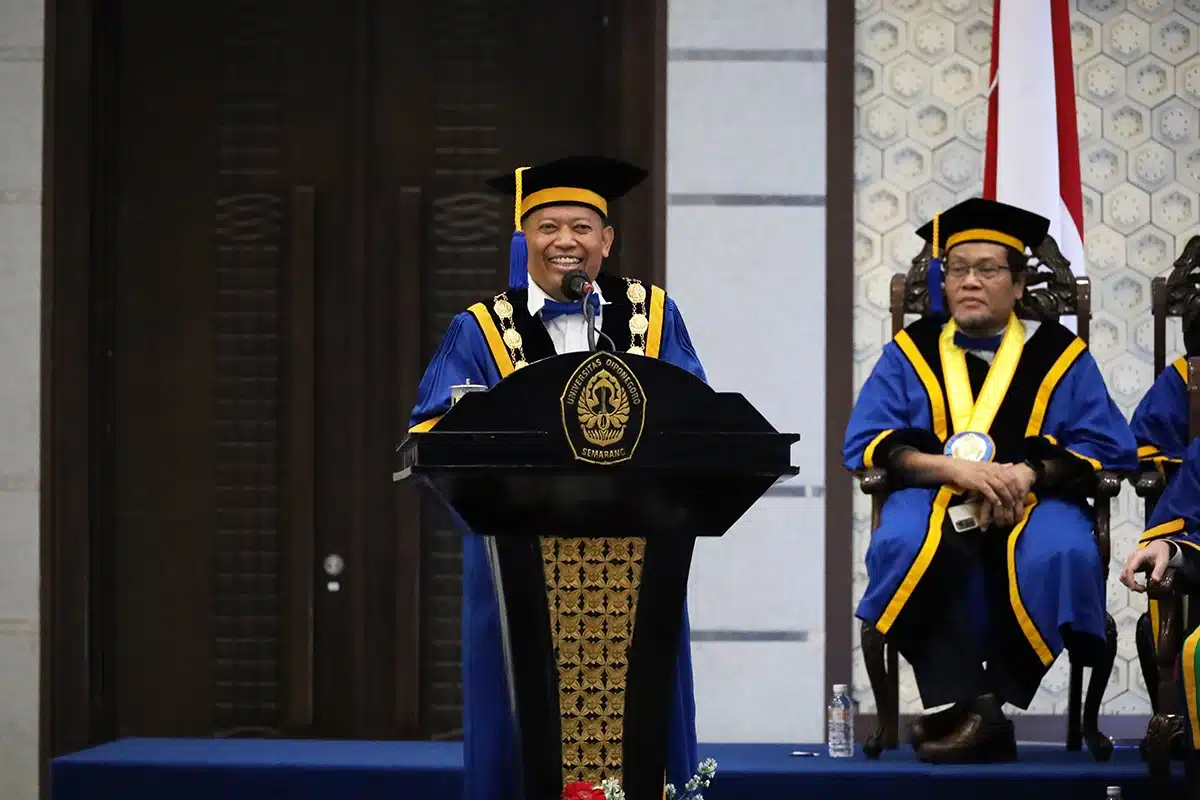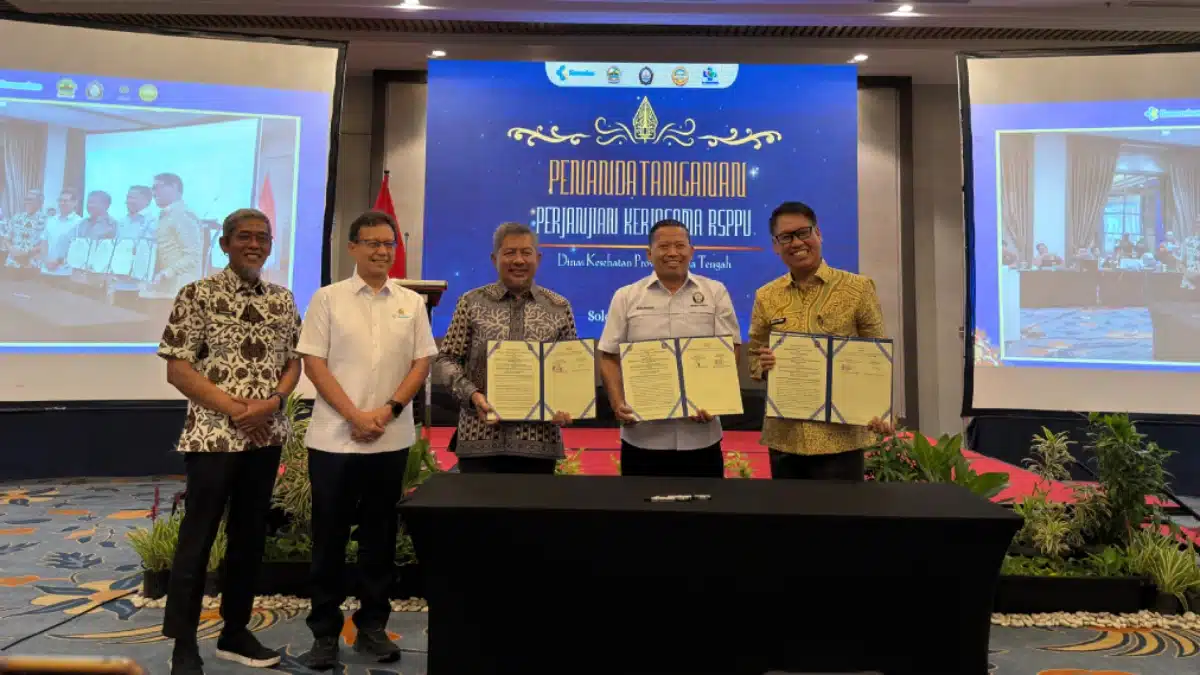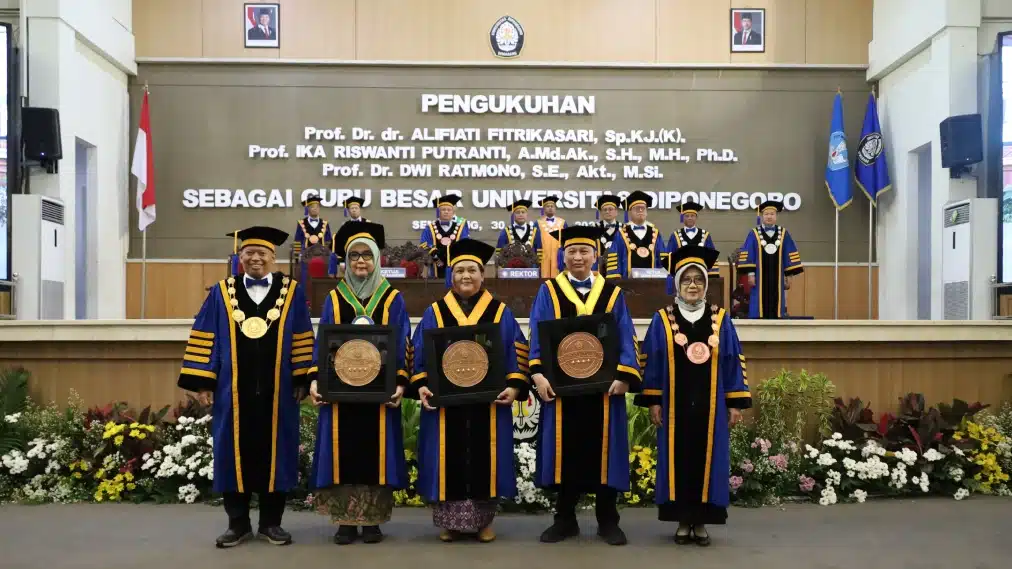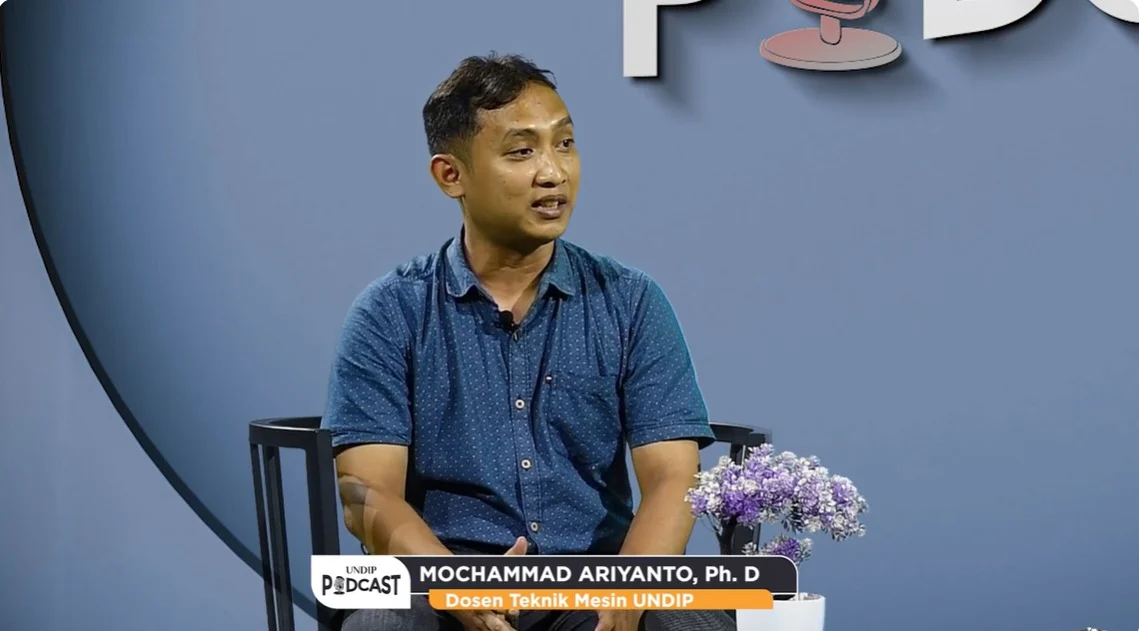UNDIP, Semarang (September 3, 2025) – Imagine a cockroach, usually avoided by people, becoming a lifesaver in emergencies. This futuristic idea is taking shape through cyborg insects, or robotic-hybrid bugs, developed by Mochammad Ariyanto, S.T., M.T., Ph.D., a lecturer in the Department of Mechanical Engineering at the Faculty of Engineering, Universitas Diponegoro. His breakthrough not only opens new possibilities for humanitarian and rescue missions but also showcases UNDIP’s pride in having visionary researchers.
In an exclusive interview on the UNDIP Podcast, Ariyanto shared his research journey in developing cyborg insects, an innovation combining biology and robotics for search-and-rescue operations in disaster zones unreachable by humans or conventional robots. The technology equips cockroaches with miniature electronic devices, turning them into controllable micro-robots.
The idea began in late 2020 during his doctoral studies when Ariyanto, Ph.D., received a research challenge from Prof. Keisuke Morishima at Osaka University. He reflected on the difficulty of evacuations during major disasters, such as the Fukushima earthquake and tsunami or emergencies in densely populated cities. From there, the concept emerged: merging insects’ natural intelligence with robotic control systems.
His chosen insect is the Madagascar cockroach, measuring about six centimeters. It can move swiftly, climb walls, squeeze through narrow gaps, and survive in low-oxygen environments—places humans and conventional robots cannot reach. “This ability gives cyborg insects an edge, as they can still function in hazardous areas such as radioactive zones,” Ariyanto said.
The advanced technology enables human operators to control the insect’s movements by attaching a miniature, wireless robotic backpack only 2 x 3 centimeters in size, allowing it to act as a reconnaissance robot without disrupting its natural mobility.
“If we force ourselves to build a fully mechatronic robot at such a small scale, the challenges would be far more complex. This approach leverages insects’ natural advantages while ensuring their survival,” Ariyanto, Ph.D., explained.
The success of this innovation stems from collaborative research with Prof. Morishima and researchers from Osaka University, supported by the Moonshot Research and Development (R&D) program, a prestigious initiative of the Japan Science and Technology Agency (JST). Together with industry partners, the team developed a high-tech wireless backpack equipped with specialized algorithms, enabling precise control over the movement of insects.
Cyborg insects can do more than move. They can record video, detect body heat, and even recognize human faces through smart sensors integrated with microcontrollers. All data is transmitted in real-time to the command center, aiding SAR (search and rescue) teams in locating victims quickly and accurately.
The cyborg insects can be operated in two ways: manually via wireless signals by an operator, or through an autonomous navigation system that allows them to avoid obstacles with the help of algorithms intelligently. Ariyanto, Ph.D. is also working on deep learning integration to enable the insects to respond to voice commands.
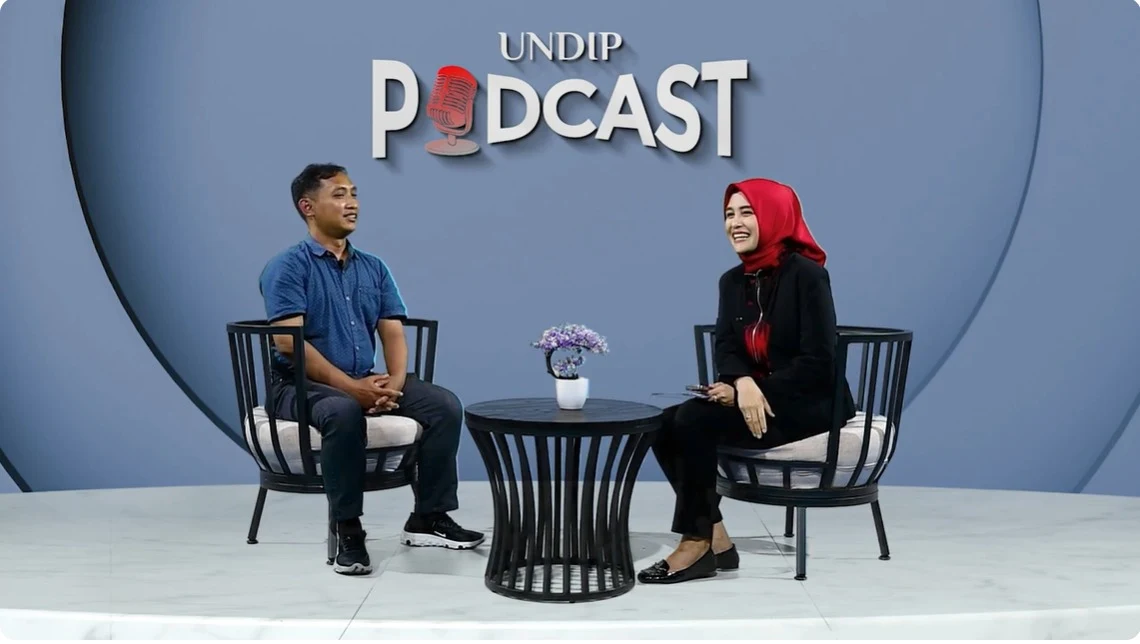
Though initially developed for Japan, Ariyanto, Ph.D. sees enormous potential for Indonesia, a country prone to earthquakes, landslides, and floods. “I believe this technology can support rescue missions in Indonesia, especially in densely populated urban areas,” he said confidently.
Beyond cyborg insects, Ariyanto, Ph.D. is designing long-term research on other bionic technologies, including artificial hands and exoskeletons for people with disabilities, bird and fish control systems, and rat-based robotic platforms for specialized land, air, and underwater missions. All are part of his dream to create innovations that benefit society.
His academic journey began at UNDIP in 2010, where he completed his bachelor’s and master’s degrees before earning his doctorate at Osaka University, one of Asia’s top universities. While in Japan, he also developed software still used by students and researchers there. His recognition even led to an appointment as a visiting professor and doctoral examiner.
Returning to Indonesia carried deep meaning. Although offered a permanent teaching position in Japan, he chose to return home to fulfill his parents’ dream and serve his country. Now, he actively teaches and mentors engineering students at UNDIP to pursue innovative research.
International collaboration continues. UNDIP has signed an MoU with Osaka University to advance research, education, and community engagement. This signing shows how Indonesian universities can thrive on the global stage.
For Ariyanto, Ph.D., technology is not just about intellectual achievement but also social responsibility. He emphasizes the importance of embedding ethics in every innovation to ensure tangible benefits for society. He urges Indonesia to build confidence in developing its own technologies. “Our facilities may not match developed countries, but the spirit must remain strong. If we continue to rely on others, we will remain importers, and knowledge transfer will rarely occur. If not us, who else will advance this nation?” he said optimistically.
Ariyanto, Ph.D. proves that global contributions can grow from local campuses. He is not only a scientist but also a driver of future humanitarian technology. (Public Communication/ UNDIP/ DHW)


